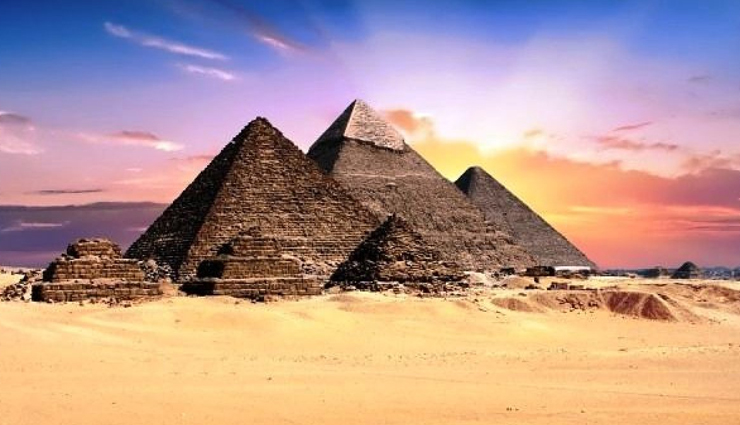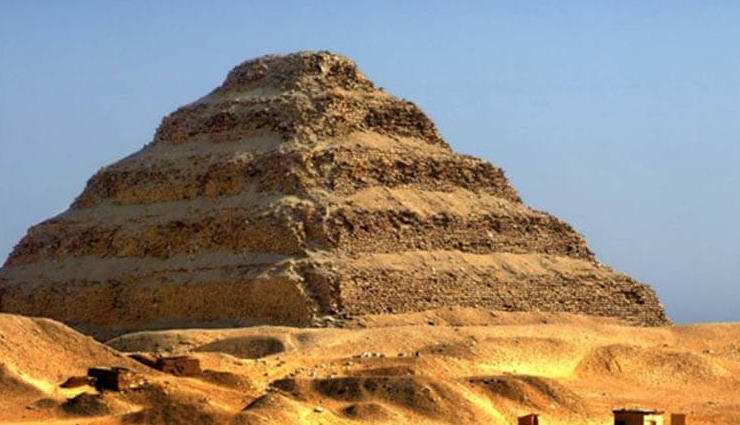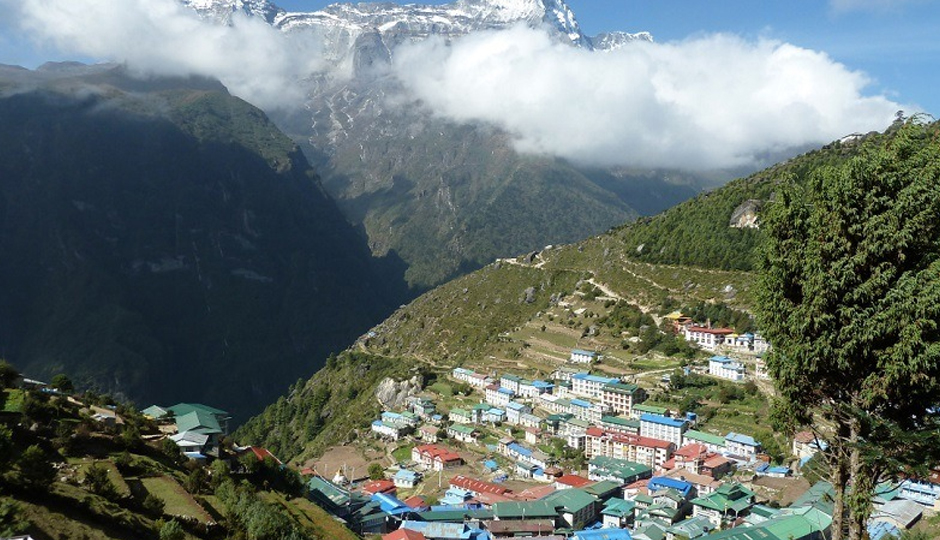5 Must Visit Pyramids From Around The World
By: Kratika Maheshwari Mon, 18 Oct 2021 7:49:18

Almost every ancient culture and civilization, be it Mesopotamian, Chinese, Egyptian, or Mayan, has left a legacy of towering ancient pyramids. Although we are most familiar with the pyramids in Egypt, specifically the Great Pyramid in Giza, it’s not the only one. A surprisingly global phenomenon, we can find several ancient pyramids around the world.
These majestic structures are truly masterpieces of engineering, mostly serving as tombs, and are great archaeological sites. Less weight on top and more on the bottom ensuring that they survived to modern times largely intact. The oldest of these ancient pyramids are still something of a mystery. Knowledge of how they were constructed have been lost to history, but these imposing structures still remain.

# Pyramid of Djoser, Saqqara, Egypt
While there are over a hundred pyramids in Egypt, the Pyramid of Djoser is the oldest. Built by the Pharaoh Djoser (Zoser), this step pyramid predates those at Giza by more than a century. Before this, pharaohs’ tombs were flat-topped mounds. It was Djoser’s chief architect, Imhotep, who placed these mounds one-on-top-of-the-other, creating the Pyramid of Djoser, the world’s first step pyramid. Djoser was the first king of the Third Dynasty of Egypt. Prior to his reign, mastaba tombs were the customary norm for graves. There’s not much known of Djoser or his reign, he is believed to be the son of the last king of the Second Dynasty of Egypt, Khasekhemwy (c. 2680 BCE). The actual chambers of this tomb where the body of Djoser was laid to rest were dug beneath the base of the pyramid as a maze of tunnels with rooms off the corridors to discourage robbers. The underground passages of the Pyramid of Djoser are vast and have multiple stone vessels in various shapes and sizes.

# Pyramid of the Sun, Teotihuacan, Mexico
The central Mexican city of Teotihuacan is an architectural marvel, filled with intricate structures and massive step pyramids. The most impressive of these is the 240-foot-tall Pyramid of the Sun, constructed in five layers. It is located along a central Avenue of the Dead which also connects it to a smaller Pyramid of the Moon. The material used to construct this awe-inspiring structure was hewed tezontle, a red coarse volcanic rock of the region. On the west side of the pyramid, there are 248 uneven stair steps that lead to the top of the structure. There’s little known about who built Teotihuacán, and the purpose of the Pyramid of the Sun remains largely a matter of speculation. Some archaeologists are of the opinion that there was once a temple atop the pyramid. In the early 1970s, archaeological exploration below the structure revealed a huge system of caves and tunnel chambers. and other tunnels were later found throughout the city.

# El Castillo, Yucatan, Mexico
One of the most spectacular Mayan temples, the 98-foot-tall Chichen Itza pyramid nicknamed El Castillo, or the Temple of Kukulcan, has special astronomical significance. Each of its faces has 91 steps, which, when combined with the shared step at the top, make 365 steps, one for each day of the year. This massive structure is situated near the small town of Piste and you can get there by bus from the airports of Mérida and Cancun or other Mexican cities. A fascinating feature of this pyramid is that during the spring and autumn equinoxes, light and shadow form a series of triangles on the side of the north staircase. These shadows form the shape of a snake that appears to be moving. In 2015, researchers found that the popular pyramid most likely sits atop a 20m-deep cenote, which puts the structure at greater risk of collapsing.

# Prang Temple, Koh Ker, Cambodia
Once the ancient capital of Cambodia, Koh Ker was home to almost 100 temples, most of which are still standing. Among the structures and pyramids built under the reign of Jayavarman IV, this seven‑tiered and 118-foot-tall pyramid is truly unparalleled. However, very few of its beautiful sculptures are left at the site, having either been looted over the years, or placed in museums by the government. Koh Ker is an offbeat destination that not many tourists are aware of. The temple complex was once ridden with landmines and has only recently been open to the public. There are several temple ruins to explore in Koh Ker making it the perfect destination for history buffs.

# Pyramid of Khufu, Cairo, Egypt
When most people think of Egyptian pyramids, the towering Pyramids of Giza probably come to mind. Of the three, it is the pyramid built for Pharoah Khufu, known as the Great Pyramid, that was, for millennia the largest manmade structure in the world and still remains a popular site. It is also the only remaining wonder of the ancient world. This famous pyramid contains an estimated 2,300,000 blocks, some of which are upwards of 50 tons. Khufu’s pyramid is constructed of inner, rough-hewn, locally quarried core stones, which is what we can still see today. The interior chambers are mysteries in their own right. There is an unfinished subterranean chamber whose function is still unknown. There are also a number of so-called ‘air shafts’ that radiate out from the upper chambers. While you enter the pyramid, you have to crawl up a cramped ascending chamber that opens suddenly into a stunning Grand Gallery.





